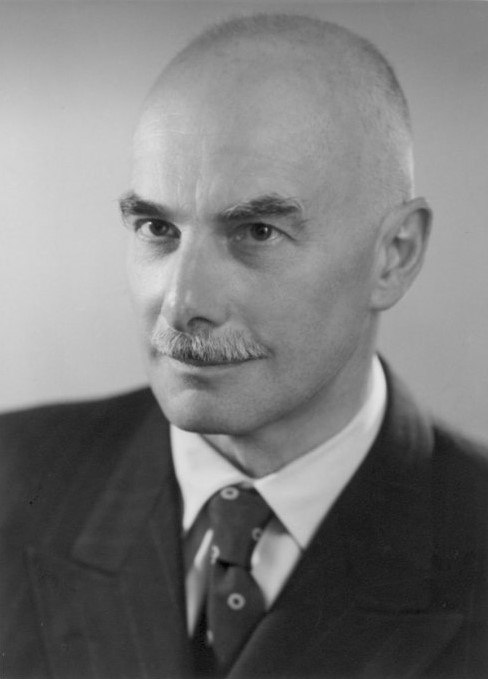Johann Schima, Prof. Dr. jur., Dr. h.c.
Honors
| Ehrung | Titel | Datierung | Fakultät | |
|---|---|---|---|---|
| Honorary Senator | sen.h.c. | 1966/67 |
|
Functions
| Dean | Faculty of Law and State | 1949/50 |
| Senator | Faculty of Law and State | 1951/52 |
| Senator | Faculty of Law and State | 1952/53 |
| Senator | Faculty of Law and State | 1953/54 |
| Senator | Faculty of Law and State | 1954/55 |
| Rector | Faculty of Law and State | 1956/57 |
| Senator | Faculty of Law and State | 1959/60 |
| Senator | Faculty of Law and State | 1960/61 |
| Dean | Faculty of Law and State | 1963/64 |
- Legal Science
- Civil Procedure Law
- Faculty of Law and State
Schima, whose father had been president of the Austrian patent office and section chief in the ministry of commerce, attended the Schottengymnasium secondary school in Vienna and graduated in 1913. In that same year he enrolled at the University of Vienna and began his studies at the juridical faculty, which he interrupted for two years because he took part in the First World War. As part of the 125th field artillery regiment he served from August 1916 until November 1918 at the eastern, western and southern fronts, at the end with the rank of lieutenant of the reserve.
After obtaining his doctorate in October 1919, he continued attending lectures as an extracurricular student at the University of Vienna and worked at different Viennese courts. In 1920 he joined the State Financial Procurator’s Office, transferred to the ministry of finance in 1923 and helped introduce the commodity sales tax. Later Schima worked in the tax and credit office as well as in the president’s office.
He habilitated for civil procedural law in 1928 under Hans Sperl with the paper “Die Versäumnis im Prozeß” and became associate professor in 1934. That Schima was not made associate professor shortly afterwards – the faculty had applied for it in 1935 – can be explained with financial concerns and the planned cutbacks of positions at the University of Vienna. Meanwhile, Schima became counselor at the Federal Court on January 1st, 1936, and held this position until March 1938.
The Nazi authorities rescinded Schima’s venia in April 1938, while he also had to step down from his duties at the Federal Court. His dismissal did incidentally not happen as a result of a request by the faculty, as was usually the case after the “Anschluss”. At the end of February 1939 he was sent into retirement as former counselor of the Federal Court, in regard to which Rathkolb – relying on an evaluation by the NSDAP Gau personnel office – mentions Schima’s clerical views as a reason for the measure. According to the files, however, “racial” reasons were at least partly also responsible, since the retirement was decided in accordance with §3 of the Career Civil Servant Act. By his own account, Schima had five “Aryan” and three “Jewish” great-grandparents and hence was considered a “Mischling 2. Grades” (“quarter-Jew”) under the terms of the “Nürnberger Rassengesetze” (Nuremberg Race Laws), even though all his grandparents had been baptized. Schima intervened at the ministry of education. He also came to speak of his political functions during Austrofascism and claimed to “never have concerned” himself “with actual politics and also never held a position in the VF [Vaterländische Front, Fatherland’s Front, author’s note]”. He also mentioned people close to the NSDAP who could attest “that [he was] guaranteed to wholeheartedly support the National Socialist state at any time”. Of course other dismissed university teachers without a close relationship to National Socialism – for example Hans Thirring – also had been able to organize these kinds of attestations by convinced Nazis, of which incidentally none can be found in Schima’s files. In any case, Schima, as a “Mischling 2. Grades” and former “front-line soldier”, could not be dismissed automatically – at least not for the moment – as he himself also mentioned in his letter to the ministry. It is quite possible that both “political” and “racial” reasons were to blame in this case. A look at other comparable cases shows, however, that even the position in the Federal Court would have been enough grounds for a dismissal or retirement.
After his retirement, Schima was able to find a position in an attorney’s office. There is no information as to the extent of that work. He received pension payments from March 1939 until April 1945. During the Nazi era Schima furthermore also served in the military. He took part in a retraining program for six weeks in 1940, then served for nine months in 1942, and was part of the “Volkssturm” at the end of the war. He only returned to Vienna shortly before his request for reinstatement on May 25th, 1945.
The requested reinstatement did indeed take place: The ministry of education approved the reinstatement of his venia on June 15th, and Schima was returned to his position on May 1st, 1945, in accordance with §4 of the Beamtenüberleitungsgesetz (civil servant transition act). In that same year he also became full professor for civil lawsuits, but also was responsible for the general study of lawsuits and international civil procedural law. In the winter semester of 1945/46 he received a further teaching appointment at the University for World Trade (later the University of Economics), where he acted as honorary lecturer. In 1948 he was made honorary professor at this university.
As a main proponent in the field of civil procedural law at the University of Vienna after the war he took up the position of Dean in the academic year of 1949/50, as well as in the year 1963/64. Schima furthermore was senator from 1951/52 until 1954/55 and from 1959/60 until 1960/61 as well as rector of the University of Vienna in the academic year of 1956/57. He also was considered an expert in the field of university law.
Schima was active in leading roles in many judicial institutions, for example as judicial consultant of the Academy of Fine Arts (1946-1949), president of the judicial state exam commission (1951-1966) and Austrian representative at the 9th and 10th International Conference for Civil Law (1960 and 1964), where he was significantly involved as an expert in the preparations for an international treaty for the enforcement of foreign rulings. He also acted as president of the Austrian Jurists’ Conference (1966-1969) and in this function was responsible for the organization of the third Austrian Jurists’ Conference in June 1967 in Vienna. He also was chairman of the commission for the overhaul of the civil code of procedure in the ministry of justice, and was nominated as general correspondent for the Congress of Comparative Law in Uppsala in the summer of 1966.
At the University of Vienna, Schima received emeritus status in September 1966 after his honorary year, while he still received a six-hour teaching appointment for the lecture “Zivilgerichtliches Verfahren” (civil law procedure) in the winter semester of 1966/67.
In the course of his career, Schima received many honors. In 1955 he became corresponding, and in 1956 full member of the Austrian Academy of Sciences, received honorary doctorates from the University of Frankfurt (1958), the University of Thessaloniki (1958) and the judicial faculty of the University of Vienna. In 1966 he was awarded the Medal of Honor of the City of Vienna in Gold, the title of honorary senator of the University of Vienna (November 30th, 1966) and the Commander’s Cross of the Order of Merit of the Federal Republic of Germany, and three years later the Grand Decoration of Honor in Gold for Services to the Republic of Austria. Earlier he had already received the Grand Decoration of Honor in Silver (1958). In 1960 he became corresponding member of the “Accademia delle Scienze dell’Instituto di Bologna” and as former rector of the “Alma mater Rudolphina” he was bearer of the Rektorserinnerungszeichen (rector commemoration medal) of the University of Vienna.
Österreichisches Staatsarchiv/Archiv der Republik, Bestand Unterricht, Personalakt Schima. | Österreichisches Staatsarchiv/Archiv der Republik, Bundeskanzleramt, Bestand „Berufsbeamtenverordnung“ (BBV).
Zuletzt aktualisiert am 10/07/24
-
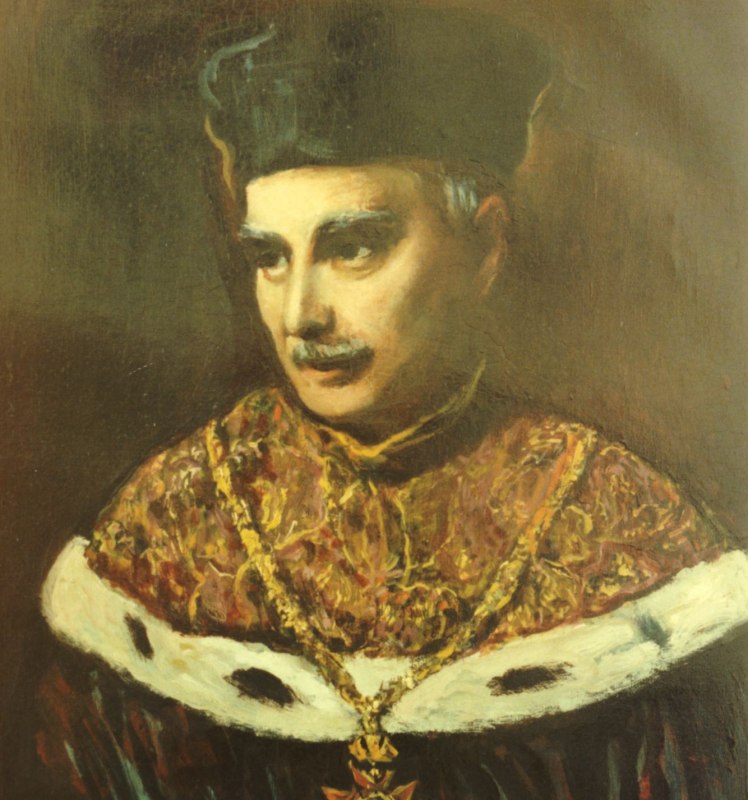
Johann Schima (1894–1979), rector 1956/57
-
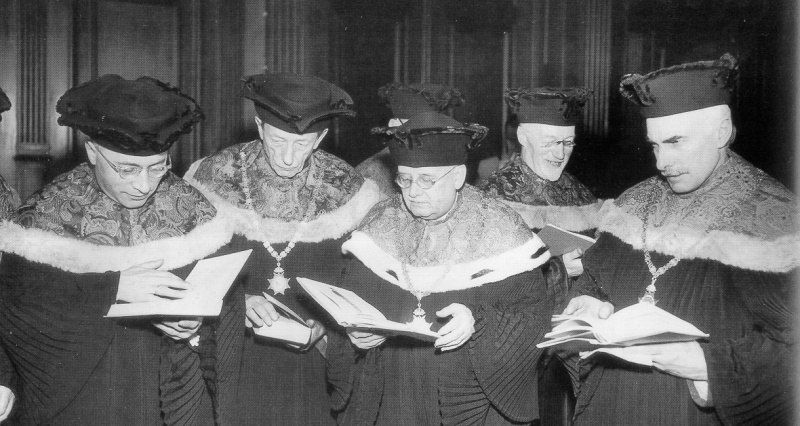
CARE mission provides scientific books to the university (dean Leitmeier, dean Kosnetter, rector Meister, senator Soelch, dean Schima)
Inauguration of the Rector of the academic year 1949/50: CARE mission provides scientific books to the university: Dean of the Faculty of Philosophy...
-
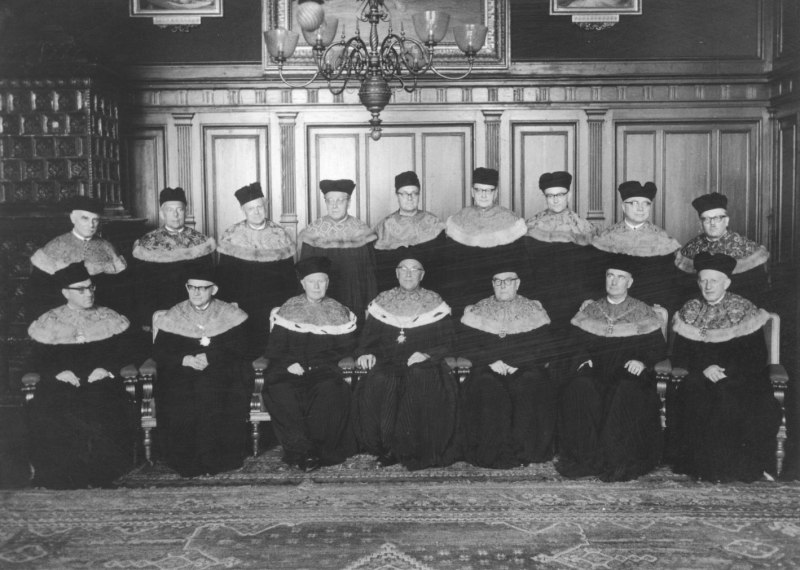
Academic Senate of the University of Vienna, academic year 1964/65
in Bildmitte Rektor Karl Fellinger , neben ihm Prorektor Albin Lesky die anderen Mitglieder des Senats: Walter Kornfeld , Gottfried Fitzer ,...
-
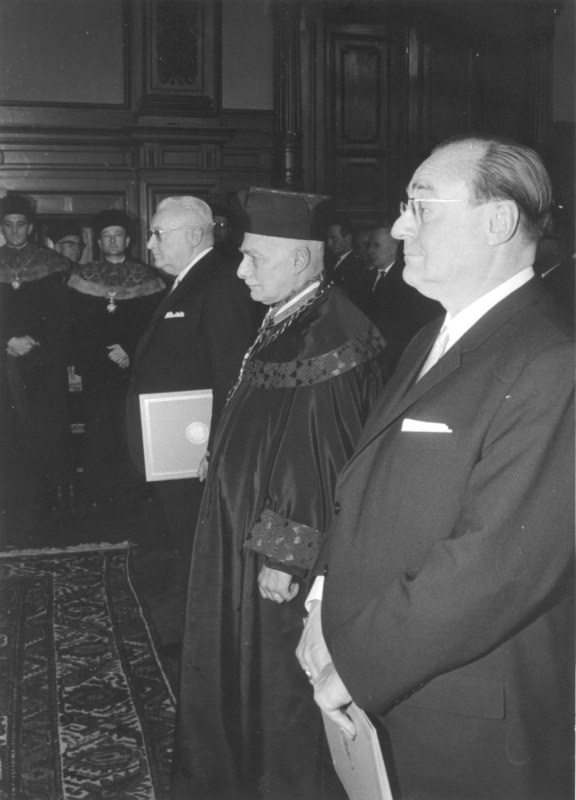
Awarding of academic honors to Prof. Hans Schima, Gen.Dir. Erich Miksch and Gen.Dir. Dr. Franz Ockermüller
-
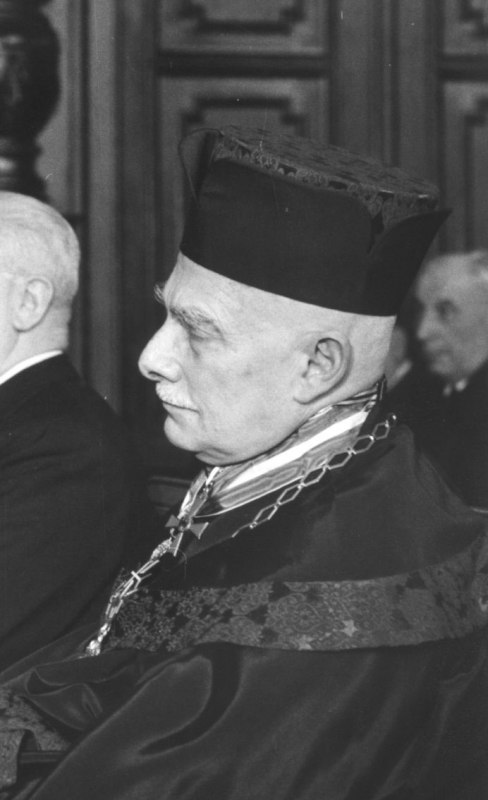
Hans Schima at the awarding ceremony as a Honorary Senator of the University of Vienna

